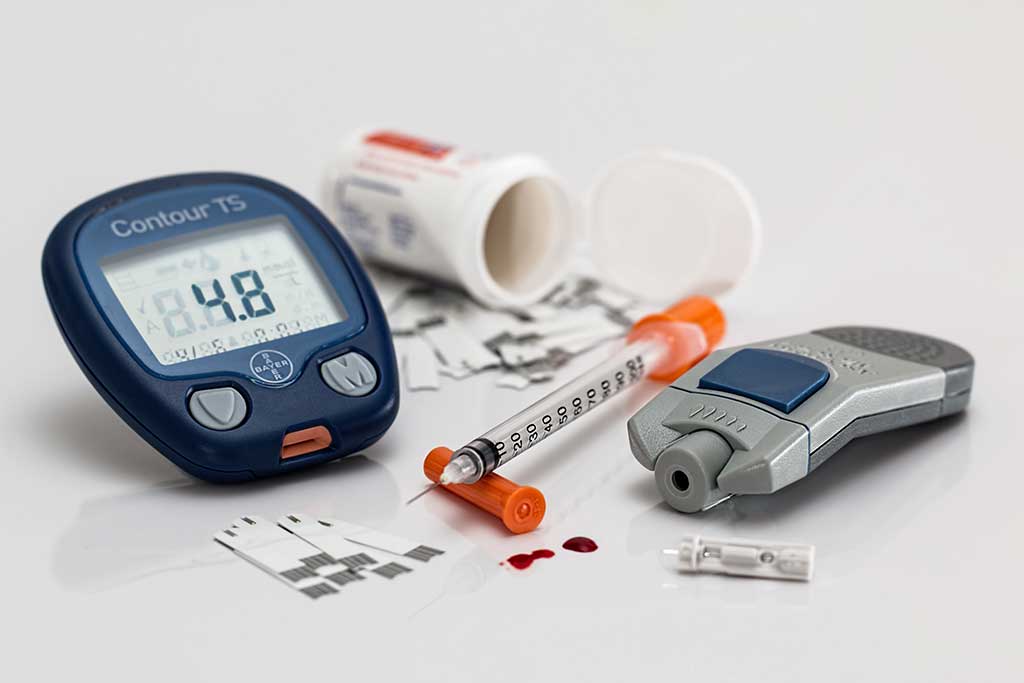Blood pressure drug linked to possible small increased risk of lung cancer
Medication

'Blood pressure pills taken by millions of patients could raise the risk of lung cancer by almost a third, according to new research' The Daily Telegraph reports
"Blood pressure pills taken by millions may raise risk of lung cancer," reports The Daily Telegraph.
Researchers used medical records to compare cancer outcomes for almost 1 million patients treated with different high blood pressure drugs. They found people who took one type of drug, called an angiotensin converting enzyme inhibitor (ACE inhibitor), were 14% more likely to get lung cancer than those taking another type, called an angiotensin receptor blocker (ARB).
However, this increase in risk for individuals is extremely small and is massively outweighed by known risk factors for lung cancer such as smoking. For example, smoking 15 to 24 cigarettes a day increases the risk of lung cancer in men by around 2,600% (making their risk around 26 times higher).
Researchers believe the reason for their finding could be that ACE inhibitors lead to an accumulation of a naturally-occurring substance called bradykinin in the lung (which causes blood vessels to dilate), and this might be linked to cancer growth.
However, at this stage we can't be sure whether ACE inhibitors directly caused the increase in risk. It's possible that other factors, including people's smoking habits, may have differed between those taking the different drugs and so may be influencing the results.
The finding needs to be followed up with more research.
What we can say with confidence is that untreated high blood pressure, which can cause heart attacks and stroke, is a far greater threat to your health than taking ACE inhibitors. So you should never stop taking any prescribed blood pressure medication without talking to your GP.
Where did the story come from?
The researchers who carried out the study were from the Jewish General Hospital and University of Toronto in Canada. The study was funded by the Canadian Institutes of Health Research and published in the peer-reviewed British Medical Journal on an open-access basis, making it free to read online
While reporting in the UK's media was accurate, it failed to make clear that for most people, a 14% increased risk of lung cancer is actually very small in absolute terms. If you don't smoke and have none of the other major risk factors for lung cancer, your risk of getting it is very small. A 14% increase from this would still be a very small risk.
What kind of research was this?
This was a cohort study using routinely collected medical data. Researchers wanted to compare lung cancer risk in patients taking different types of blood pressure drugs, to see if the risk differed by drug type.
Data sets like this are often useful to find possible links between drugs and adverse health outcomes like cancer because they can look at large numbers of people over a number of years.
However, they cannot prove that one factor directly causes the outcome. This is mainly because using observational data, you can't be sure that health and lifestyle characteristics are the same between people taking and not taking the drugs.
What did the research involve?
Researchers used the records of 992,061 patients who were first prescribed blood pressure drugs between 1 January 1995 and 31 December 2015. They followed the patients up through their records until 31 December 2016.
The information came from the UK's Clinical Practice Research Datalink (CPRD), which records detailed information from GP practices across the UK.
Researchers identified people who had taken ACE inhibitors, ARBs, or other blood pressure drugs including beta blockers and calcium channel blockers, and who had at least 1 year of health records before and after their first prescription.
They looked to see how many of these people got lung cancer during the follow up (average time 6.4 years), in the ACE inhibitor group and the ARB group.
The researchers took account of these potential confounding factors:
- age and sex
- year they entered the study
- body mass index (BMI)
- smoking status
- alcohol-related diseases
- lung diseases
- how long they'd been treated for high blood pressure (hypertension)
- use of statins
- use of other drugs (as a measure of other treated illnesses)
The researchers carried out a number of additional analyses to check for possible sources of bias in their data. This included comparing ARBs and ACE inhibitors with another blood pressure drug (a water tablet not known to increase cancer risk), and looking at data from only 1, 2 or 3 years after people started taking the drug.
What were the basic results?
Overall, people who took ACE inhibitors were 14% more likely to develop lung cancer during the follow-up period than people who took ARBs (hazard ratio (HR) 1.14, 95% confidence interval (CI) 1.01 to 1.29).
However, this 14% increase in risk represented only a small increase in absolute risk in people getting cancer:
- there were 1.2 lung cancers for every 1,000 people per year in the ARB group
- there were 1.6 lung cancers for every 1,000 people per year in the ACE inhibitors group
Researchers didn't find an increased risk for people who had been taking ACE inhibitors for up to 5 years. The risk was higher among those who took them for longer:
- a 22% increase in risk for people taking ACE inhibitors for more than 5 years (HR 1.22, 95% CI 1.06 to 1.40)
- a 31% increase in risk for people taking ACE inhibitors for more than 10 years (HR 1.31, 95% CI 1.08 to 1.59)
The additional analyses showed that ACE inhibitors were linked with a 6% increase in risk compared with the water tablet, which was only on the threshold of statistical significance – meaning it could be a chance finding (HR 1.06, 95% CI 1.00 to 1.13).
How did the researchers interpret the results?
The researchers said that "although the magnitudes of the observed associations [between ACEIs and lung cancer] are modest, ACEIs [ACE inhibitors] are one of the most widely prescribed drug classes," and that "small relative effects could translate into large absolute numbers of patients at risk for lung cancer."
They add that "given the potential impact of our findings," researchers should see if the same results are found in other population groups.
Conclusion
Headlines warning of an increased cancer risk are always alarming. This cancer link definitely needs further investigation, but it's important to bear in mind that at this stage, the finding does not represent a definite risk.
Previous studies looking at ACE inhibitors and lung cancer have had mixed results. The overall association found here, with a lower confidence interval of 1.01, only just reached statistical significance.
The absolute risk difference – only 4 per 10,000 people – was still small. Even if this represents a definite link, it's still the case that other factors such as smoking are likely to have greater influence on risk of lung cancer.
The study has strengths in its large size, but is let down by the potential for confounding. Other health and lifestyle factors could have differed between people taking the 2 drugs. The researchers did attempt to adjust for many of these factors, but they could still be having an influence.
For example, there isn't much detail about people's smoking habits, so we don't know whether they were heavy or light smokers, or how long they had smoked for, which could affect lung cancer risk.
Another potential factor is that people taking ACE inhibitors often get coughs. This might lead to them having more check-ups and tests such as X-rays that could perhaps pick up more early-stage lung cancers than would otherwise be detected among people taking other types of drugs.
If you are taking an ACE inhibitor and are worried, remember that these drugs are known to protect against heart attacks and strokes. At the moment, the link with lung cancer is not proven.
Other factors such as smoking have a much bigger effect on your chances of getting lung cancer.
As one expert, Professor Stephen Evans of London School of Hygiene and Tropical Medicine, has said: "Drawing strong conclusions and talking about public health impact in this situation seems premature."
Never stop taking any prescribed medication without first talking to your GP about your treatment options.






 Subscribe
Subscribe Ask the doctor
Ask the doctor Rate this article
Rate this article Find products
Find products





